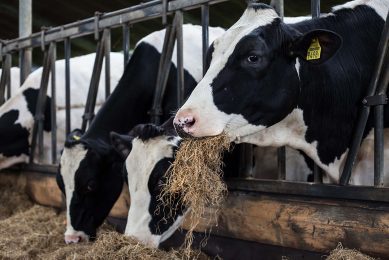Less greenhouse gas with switchgrass
Corn and soybeans may be the current “go-to” crops for producing ethanol and biodiesel, respectively. But two other crops–switchgrass and hybrid poplar–could steal the show in the future when it comes to curbing greenhouse gases, according to Agricultural Research Service (ARS) and collaborating scientists.
In a study published in the April issue of Ecological Applications, ARS
scientist Paul Adler and colleagues compared the net production of carbon
dioxide and two other greenhouse gases associated with producing biofuels from
several different bioenergy crops.
Switchgrass and hybrid
poplar
Together with ARS scientist Stephen Del Grosso of Fort
Collins, Colo., and William Parton of Colorado State University, Adler predicted
a 40%reduction of greenhouse gas emissions if ethanol and biodiesel from
corn-soybean rotations were used instead of gasoline and diesel. This reduction
was about two times greater than using ethanol produced from corn grain alone.
However, the team predicted that using switchgrass and hybrid poplar would
produce nearly a three-fold greater reduction in greenhouse gas emissions
compared to corn-soybean rotations.
This research shows that biofuels do
indeed have potential to remove greenhouse gases from the atmosphere while
helping reduce US reliance on foreign oil, according to Adler.
Related website:
ARS











